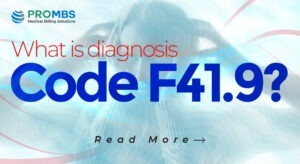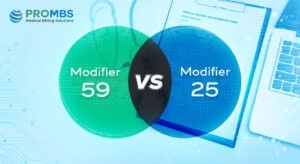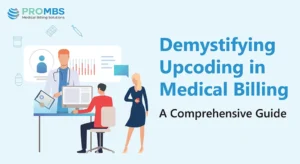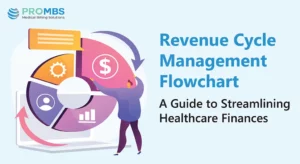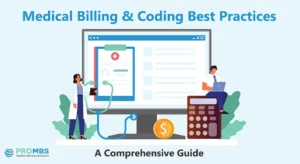In the world of Medical Billing, there’s a special kind of code called a modifier. Think of it like an extra note added to the main code for a procedure. This note allows doctors to explain if something unexpected happened during the treatment, even though the overall procedure itself remains the same.
Using modifiers wisely eliminates the need for completely new codes every time a situation is a bit different. It’s like a shorthand way of providing more details. But using these codes incorrectly can be a big problem. If the wrong modifier is chosen, it can lead to lost income for the doctor’s practice. Even worse, it could trigger an audit, which is a detailed review of medical bills by insurance companies. This guide will explain everything about them, including the different kinds, how to use them correctly, and common mistakes to avoid.
Understanding Modifiers
Modifiers for procedures can be explained in more detail with special add-on codes. These codes show things that were different about the procedure, like where it was done, if it was done multiple times, or who did it.
There are two main kinds of modifiers that add details to procedure codes: informational and pricing modifiers. Informational modifiers provide extra info about the service, while pricing modifiers affect how much is paid.
Informational Modifiers
Modifiers are added to medical bills to explain what was done during a procedure. These codes don’t change how much is paid. Here are some examples of these codes:
Modifier 22: Increased Procedural Services
This modifier is used when a procedure is more complex and takes
significantly longer than normal.
Modifier 24: Separate Doctor Visit for a New Problem During Recovery
This code is used when a doctor sees a patient after surgery for a completely different problem than the original surgery.
Modifier 25: Doctor’s visit on the same day concerning a separate medical issue
This modifier shows a very important doctor’s appointment happened on the same day as another medical service.
Modifier 50: Bilateral Procedure
This code shows the same surgery was done on both the left and right side.
Modifier 59: Distinct Procedural Service
Special codes show if a service was separate from others done that day. This modifier also affects how much is paid for a service, especially if it was complex or required extra equipment.
Modifier 26: Professional Component
This modifier shows a doctor reviewed test results, like an X-ray or blood work.
Modifier 51: Multiple Procedures
This modifier means several procedures happened all at once during the same visit.
Modifier 52: Reduced Services
This modifier applies when a procedure is stopped early or only partially done due to circumstances beyond the doctor’s control.
Modifier 53: Discontinued Procedure
This modifier shows a procedure had to be stopped early because of something unexpected.
Modifier 59: Distinct Procedural Service
This modifier means a separate procedure was performed, completely unrelated to anything else done that day.
Proper Usage of Modifiers
Getting these modifiers right is essential so medical bills are processed correctly and doctors get paid fairly. Here are some tips for using them the right way:
Use the Appropriate Modifier
Picking the exact modifier for a situation is key to getting bills paid correctly. Doctors need to use the most detailed code that perfectly explains the service they did. Using the wrong code, or skipping one entirely, can lead to bills being rejected or taking longer to process.
Use Modifiers Consistently
Doctors should use the same modifiers for the same services every time. Using different modifiers for the same thing can lead to bills being rejected or taking longer to process.
Document the Reason for the Modifier
Doctors should write down why they used a specific modifier in the patient’s file. This helps prove why the code is necessary in case someone reviews the bill later.
Common Modifier Errors and How to Avoid Them
Here are some common errors people make with these modifiers, along with tips to avoid them:
Using the Wrong Modifier
Picking the wrong modifier is a big mistake when it comes to medical bills. Doctors need to use the most detailed code that perfectly explains exactly what they did for the patient.
Failing to Use a Modifier
Skipping a necessary code can lead to bills being rejected or taking longer to process. Doctors need to make sure they use all the codes needed to explain what they did.
Using Multiple Modifiers Incorrectly
Piling on too many incorrect codes can cause problems with bills getting paid. Doctors should use the right codes carefully, and only use one per service, making sure they use the same ones consistently.
Using Outdated or Invalid Modifiers
Using old or wrong modifiers on a bill can lead to it being rejected or taking longer to process. Doctors need to make sure they’re using the latest and most accurate codes.
In conclusion, modifiers serve as essential tools in Medical Billing, allowing healthcare providers to communicate crucial details about procedures performed. These codes explain any unexpected circumstances or variations that occurred during the treatment. By using modifiers effectively, providers can avoid creating entirely new codes for slightly different situations, streamlining the billing process and ensuring clarity. However, the importance of accurate modifier usage cannot be overstated. Selecting the wrong code can lead to lost revenue for the practice and even trigger audits. Therefore, healthcare professionals must prioritize understanding and applying modifiers correctly.







